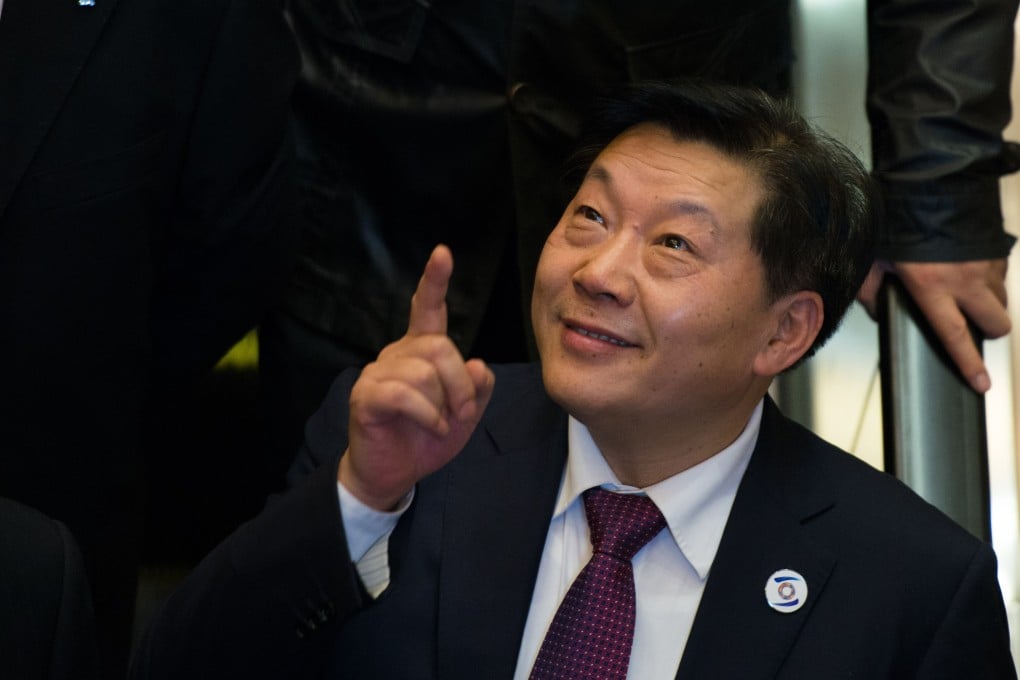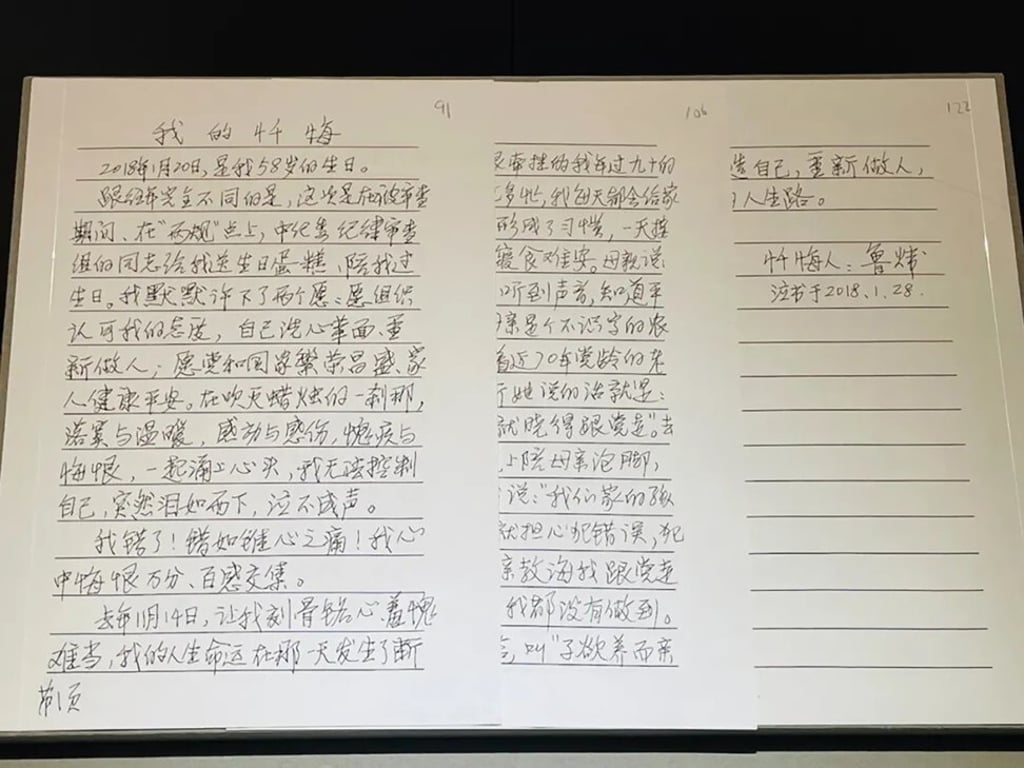Advertisement
Confession of jailed Chinese internet tsar goes on display in new Communist Party museum
- Lu Wei, the former face of censorship in China, was jailed for 14 years for corruption in 2019
- Chinese newspaper says his written confession shows the party’s ‘force and warmth’ while the senior official was under investigation
Reading Time:3 minutes
Why you can trust SCMP
3

The written confession of Lu Wei, China’s disgraced internet tsar who once rubbed shoulders with Facebook founder Mark Zuckerberg, was put on display by Beijing in an exhibition dedicated to its efforts to fight corruption.
Lu, 61, became the first director of the Cyberspace Administration of China when the office was founded in 2014. In 2019, he was sentenced to 14 years in prison after pleading guilty to corruption.
Displaying his confession is part of Beijing’s efforts to show the human side of its anti-corruption drive, and offers a rare glimpse into what life is like behind bars for the former political star.
Advertisement

As Lu spent his 58th birthday under investigation by the Communist Party’s secretive anti-corruption body in 2018, the investigators presented him with a cake, he wrote in his confession.
Advertisement
“As I blew the candle, a sense of loneliness, warmth, sorrow and regret rushed to my head,” he wrote, according to the pages on display at the Museum of the Communist Party of China, which was opened in June to mark the party’s centenary in July.
Advertisement
Select Voice
Select Speed
1.00x